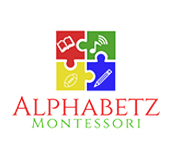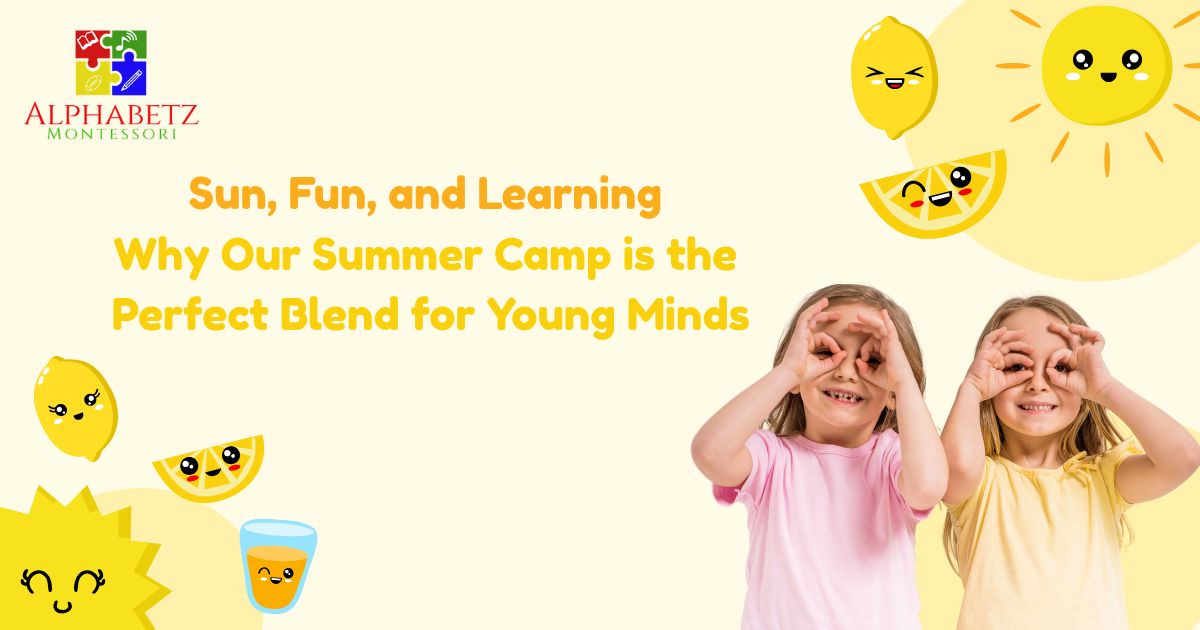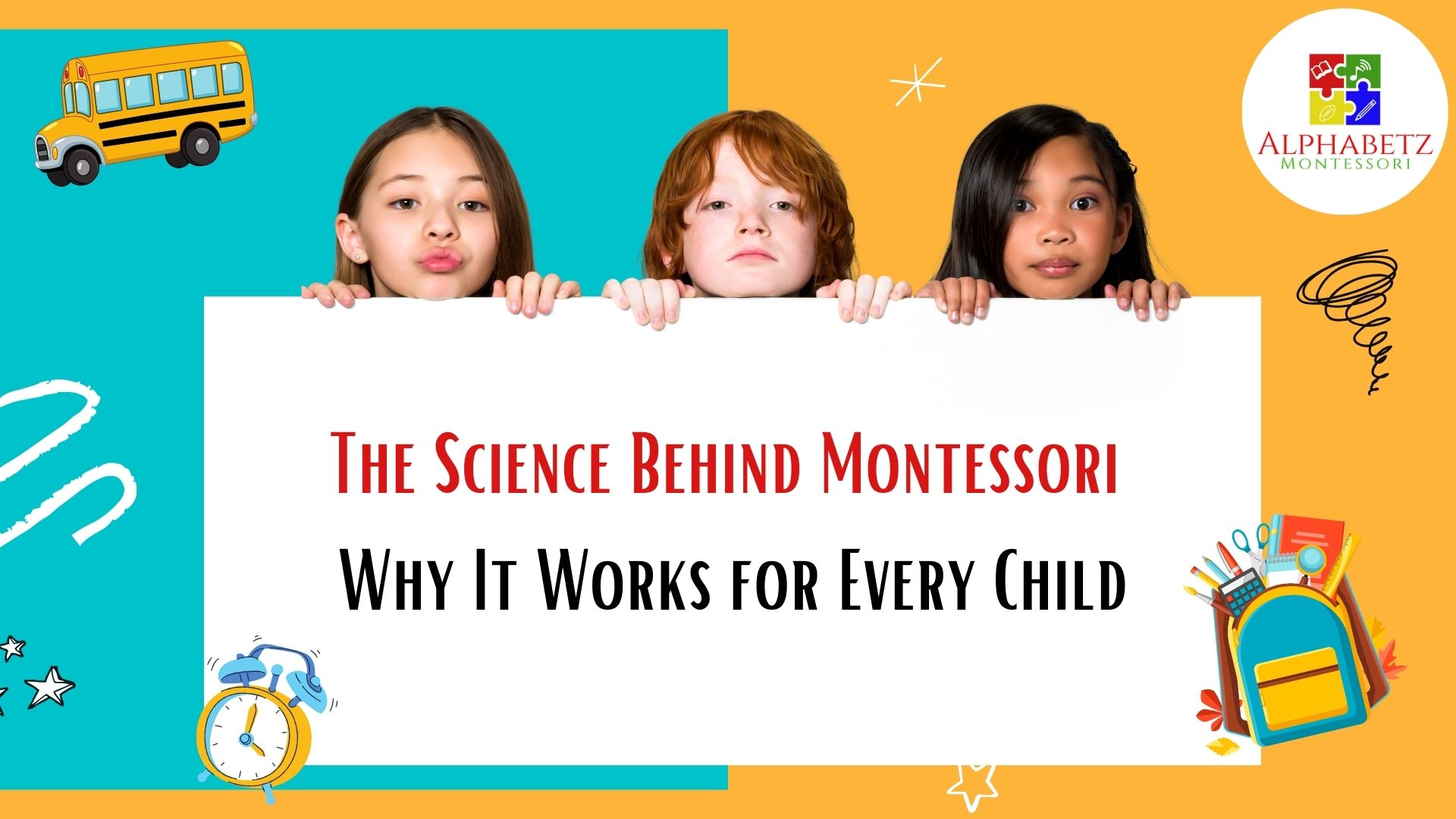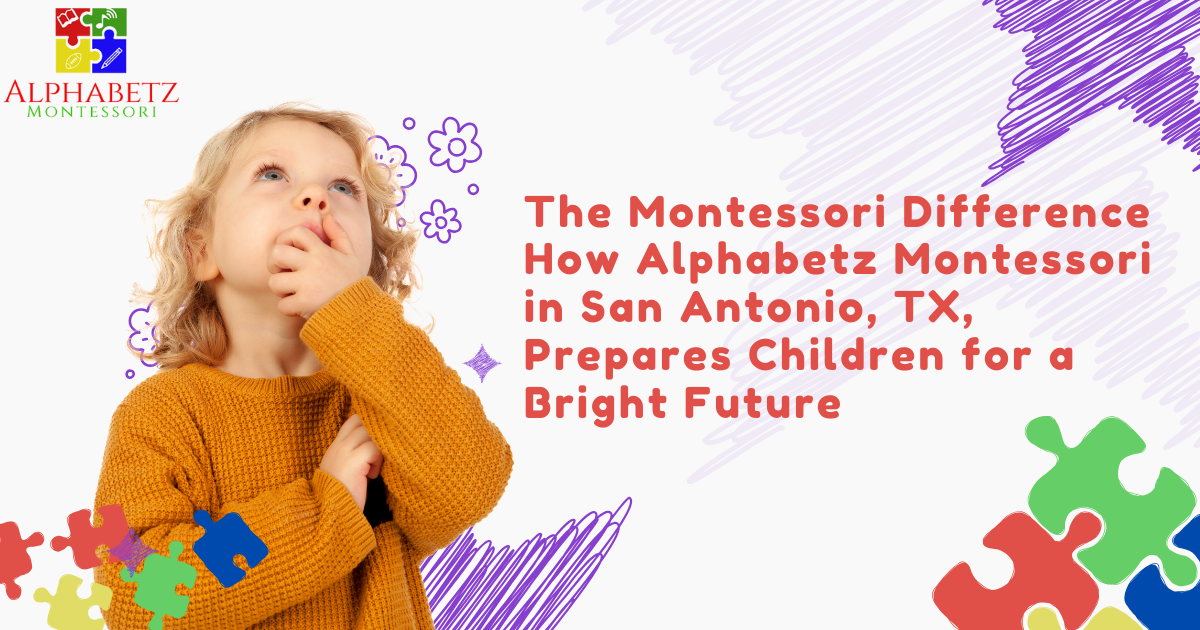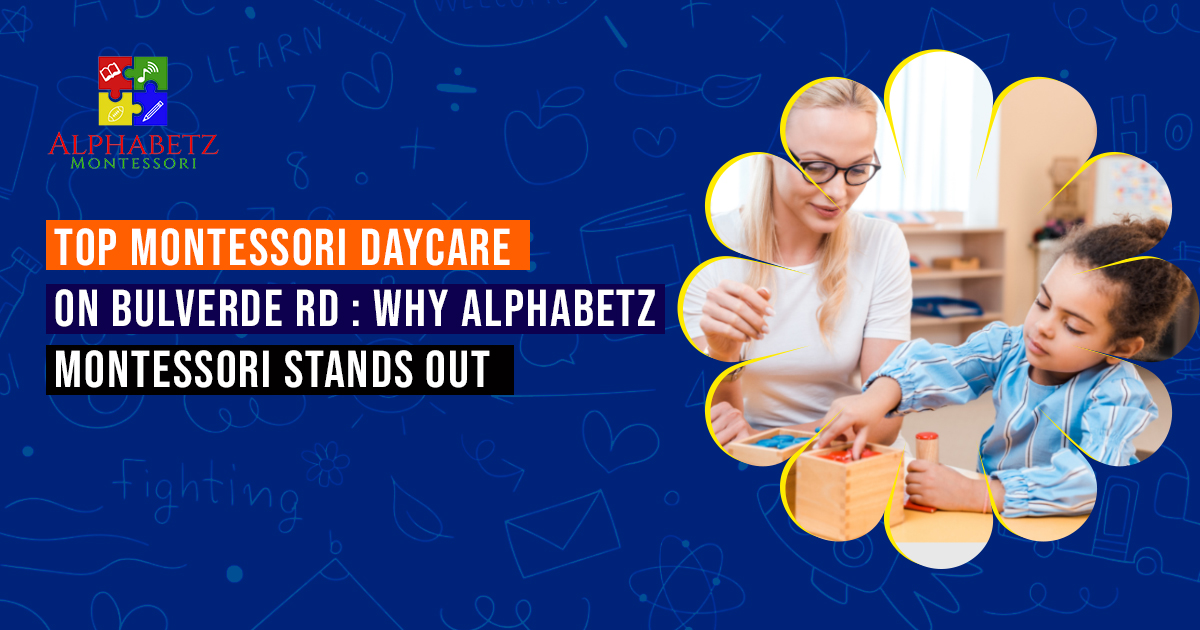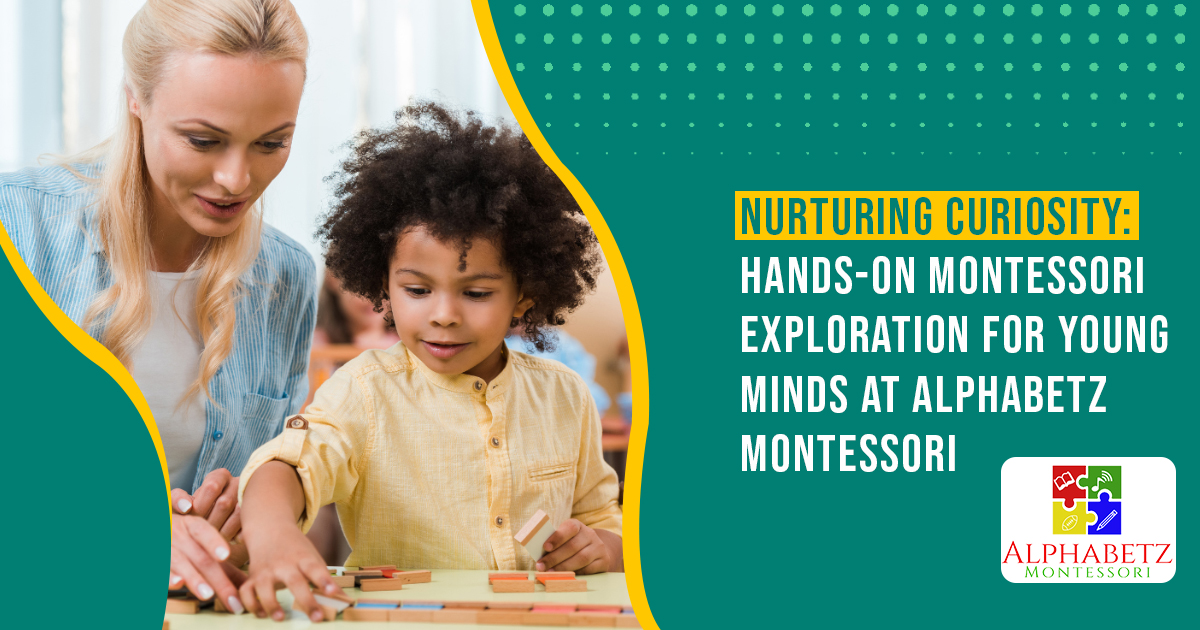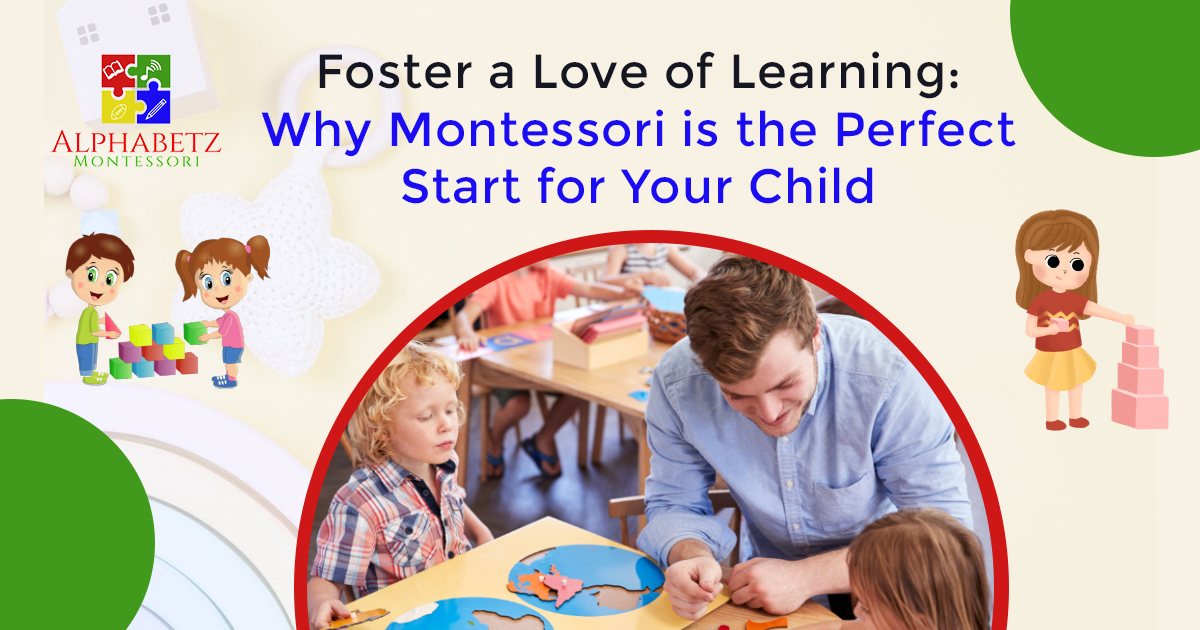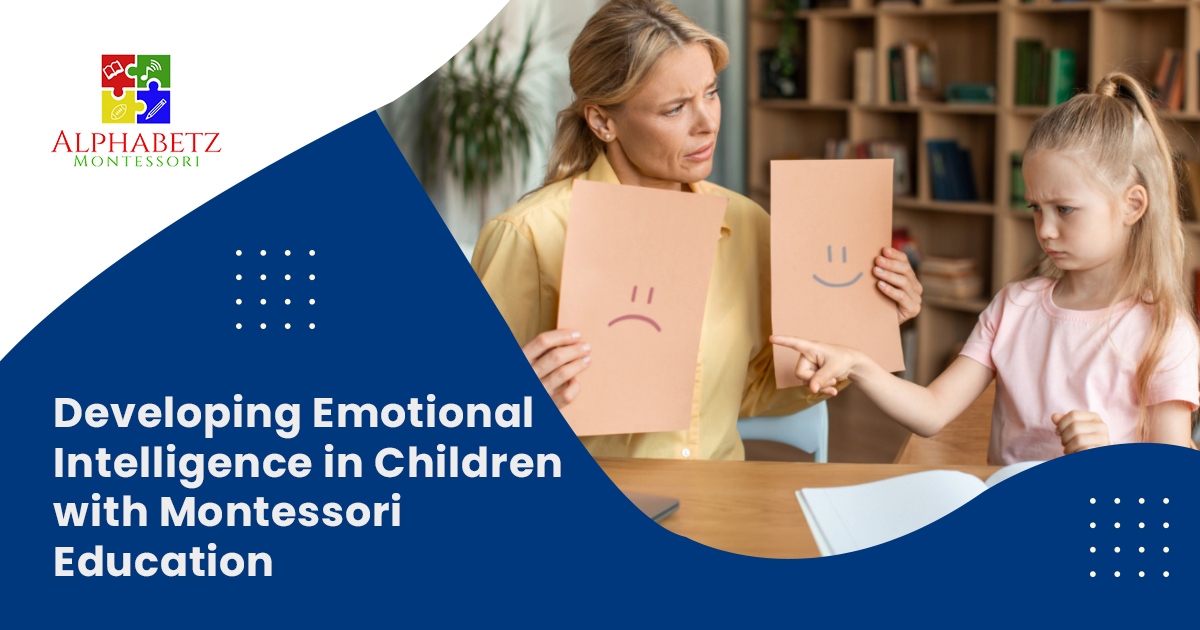Explore the essence of Montessori education at Alphabetz Montessori’s blog. Nurturing holistic development and nature-inspired learning in San Antonio, TX.
At Alphabetz Montessori, we believe that learning doesn’t take a break when school’s out. That’s why our Summer Camp program is thoughtfully designed to offer children a joyful and enriching experience that blends play, creativity,…
In today’s fast-paced world, parents are constantly searching for the best education for their children—one that nurtures creativity, fosters independence, and instills a lifelong love of learning. Montessori education has been a time-tested, research-backed approach…
Selecting the right preschool is a crucial step in shaping your child’s future. With so many educational options available, it can be overwhelming to decide which approach aligns best with your child’s needs and your…
Finding the right childcare for your child can be one of the most significant decisions you’ll make as a parent. It’s about finding a place that fosters your child’s natural curiosity and development, where they’re…
In today’s fast-paced world, parents are constantly searching for educational methods that promote the holistic development of their children. Alphabetz Montessori, a leading institution for Montessori in San Antonio, stands out as a unique and…
As parents, we all want to give our children the best possible start. Our choices during their early years can profoundly impact their future, shaping their values, abilities, and overall approach to life. One of…
Building a Strong Foundation for Life At Alphabetz Montessori, we believe in nurturing the whole child. This goes beyond just academics and encompasses the crucial development of emotional intelligence (EQ). In today's world, EQ is…
Raising a curious infant is akin to being an explorer's guide, navigating through a world brimming with wonder and discovery. As caregivers, our role is not just to safeguard this journey but to enrich it,…
Summer is a time of freedom and exploration for children, a break from the routine of school that opens up opportunities for growth and learning in new environments. One such opportunity is offered by Alphabetz…
In the realm of early childhood education, the Montessori method stands out as a beacon of innovation, emphasizing the holistic development of the child. This blog delves into the essence of Montessori education and its…
